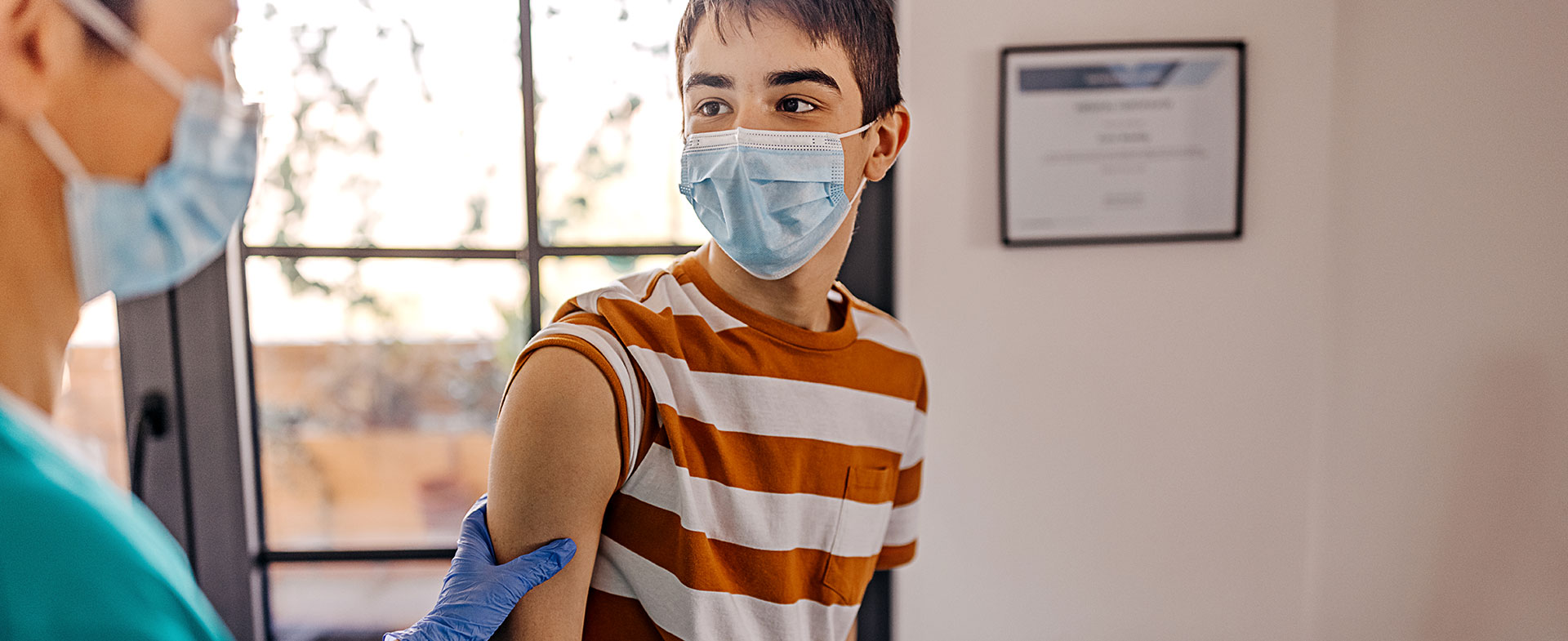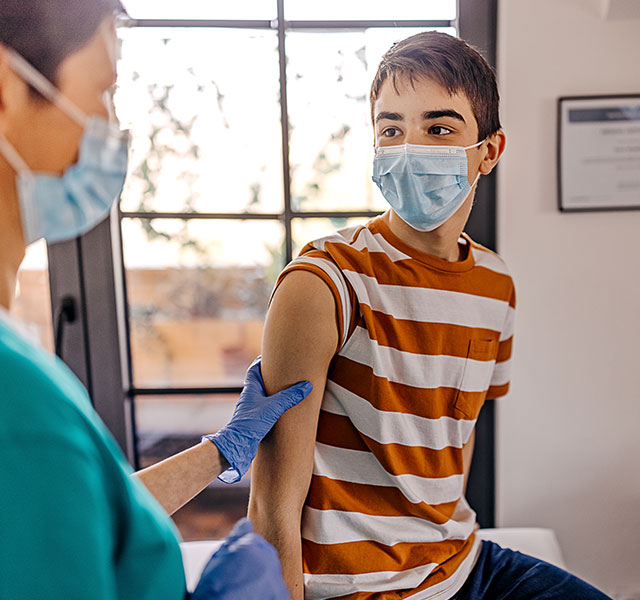Last month, the Food & Drug Administration (FDA) issued an emergency use authorization for the Pfizer COVID-19 vaccine in children ages 12 to 15. Moderna and Johnson & Johnson are currently conducting vaccine clinical trials for this age group and could receive emergency use authorization in the coming months.
Rest assured, the Pfizer vaccine is safe for those ages 12 and up, and it will protect them against contracting and spreading COVID-19. Vaccinations are an important tool in helping to end this pandemic. The Centers for Disease Control and Prevention (CDC) recommends that everyone ages 12 and up get vaccinated against COVID-19, but it is understandable that parents may have some questions before having their children vaccinated.
“Conversations about getting your child vaccinated are welcome,” says Tisa Johnson-Hooper, M.D., a pediatrician with Henry Ford Health. “As pediatricians, we want parents to make a decision that they feel comfortable with. Having a conversation with someone you trust—with someone who has evaluated the science and who has your child’s best interest in mind—can help you make the best decision for your child.”
Here, Dr. Johnson-Hooper answers questions you may have about the COVID-19 vaccination in children.
Q: How do we know the Pfizer vaccine is safe for 12- to 15-year-olds?
A: We know the Pfizer vaccine is safe because it was studied among thousands of youth between the ages of 12 and 15. The exact dosage was studied, the interval between doses was studied—everything went through the proper protocols and was intensely monitored. Only after the vaccine had gone through a rigorous evaluation of being safe and effective did it receive emergency use authorization.
Q: If kids don’t contract severe cases of COVID-19 as often as adults do, why should they be vaccinated?
A: While it’s true that children do not land in the ICU due to COVID-19 as often as adults, there have been children who have experienced that outcome. And we don’t know whether children who experience a milder form of COVID-19 will have long-term health effects, as is happening in some adults with mild or asymptomatic cases.
Also, the COVID-19 pandemic has caused significant mental health issues in children. We’re seeing more anxiety, more hospitalization from suicide attempts, more academic struggles and failures. We’re seeing children with weight gain who are becoming pre-diabetic, and children with sleep issues. When you look at these aspects of the COVID-19 pandemic, you see that children have suffered tremendously. And getting vaccinated is the key to allowing them to be able to socialize, have fun, go to school—and just get back to being kids.
Q: Are there any children who shouldn’t get vaccinated?
A: Any child who has had an allergic reaction to a vaccine in the past, or who is allergic to any of the ingredients in the currently authorized vaccines, should have a thorough discussion with their pediatrician before deciding whether the vaccine is safe for that child.
Q: Can children with underlying health conditions get vaccinated?
A: Yes. In my practice, I’ve had children with special healthcare needs whose parents are concerned about vaccinating them because they have a chronic illness. But that’s all the more reason to get vaccinated: these health issues make these children particularly high risk, should they contract COVID-19.
Q: What vaccine side effects can children expect?
A: The side effects experienced in children are similar to the side effects experienced in those who are 18 and older. After both doses—most noticeably after the second dose—they can experience achy joints, muscle tenderness, injection-site pain, fever, fatigue, nausea and vomiting. This compilation of symptoms should last no more than two days and can be treated with Tylenol and rest.
In some cases, children may experience more intense side effects than adults because their immune systems are more robust, but rest assured, it shows the vaccine is working. They can’t contract COVID-19 from the vaccine. It just shows they are developing immunity from it.
Q: If my children recently received other vaccinations, do they have to wait to get the COVID-19 vaccine?
A: No, they don’t have to wait. This is good news because children require a lot of vaccinations, especially that 12-year-old age group. During the pandemic we’ve seen a decline in vaccinations, and we’re really trying to encourage families to stay on schedule. So it’s great to know that they can continue with other vaccinations while getting the COVID-19 vaccine.
Q: How should I prepare my child for vaccination?
A: In preparing for any vaccine, all kids are different. Some kids roll with it, other are fearful of needles. First and foremost, you know your child and how they respond to these things. If you have a child who is anxious, don’t tell them about it weeks in advance but don’t spring it upon them, either. Just don’t give them too much time to be anxious or worried.
For some kids, it helps to know exactly what is going to happen every step of the way. Explain the process to them. If you have a child who has a developmental delay, it might be helpful to describe to them what will happen through pictures. And be honest with your children: let them know that they may feel a pinch, but afterward it will be over.
If they experience side effects after vaccination, it’s fine to give them Tylenol for a fever, pain and soreness. But don’t give it to them before vaccination—only after, and only when they experience pain—as it could blunt the immune response.
Q: When will the vaccines be approved for children younger than 12? How will we know they’re safe?
A: This is all being evaluated as we speak. I would hope that by fall we’ll have vaccine availability for younger kids. Henry Ford is involved in the Moderna COVID-19 vaccination study and is evaluating the safety and efficacy in children from 6 months to 11 years old. In your deliberation and consideration of the vaccine, I encourage parents to make sure they’re getting information from trusted sources: health systems, the CDC and the FDA, for example.
There are a lot of myths on social media and the internet, which can make people anxious and overwhelmed with decisions like this. If you have any questions, I encourage you to reach out to your pediatrician. Don’t feel reluctant to do so—we’re more than willing to have this conversation with families.
Schedule an appointment or find a walk-in location to receive a COVID-19 vaccine.
To find a pediatrician, visit henryford.com or call 1-800-436-7936.
Dr. Tisa Johnson-Hooper is a board-certified pediatrician and serves as the medical director of the Henry Ford Center for Autism and Developmental Disabilities. She sees patients at Henry Ford Medical Center- New Center One in Detroit.



